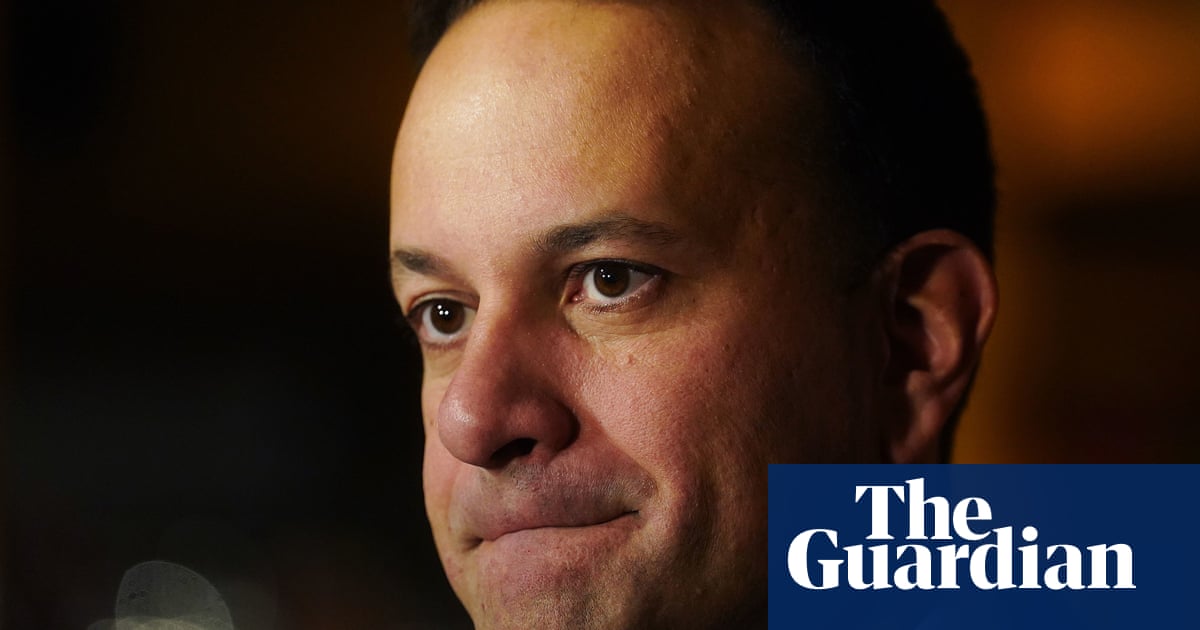
The Irish prime minister, Leo Varadkar, has said mistakes were made on all sides in the handling of Brexit, vowing to be “flexible and reasonable” when attempting to solve issues with the Northern Ireland protocol.
“One thing I have said in the past is that, when we designed the protocol, when it was originally negotiated, perhaps it was a little bit too strict,” the taoiseach told reporters at a briefing in Dublin.
His remarks are aimed at laying the groundwork for an intensification of talks between the EU and the UK over the Brexit arrangements he agreed with the former prime minister Boris Johnson in a meeting in Wirral in October 2019.
Pressure is mounting for an outline of a deal before 19 January, the deadline set by the UK’s Northern Ireland secretary, Chris Heaton-Harris, to call fresh elections for Northern Ireland’s devolved government.
In a significant remark, Varadkar conceded that the protocol, which has never been fully implemented after the former Brexit minister David Frost abandoned checks on goods including fresh food at Northern Irish ports, was not causing the problems the EU had envisaged back in 2019.
“We’ve seen that the protocol has worked without it being fully enforced. And that’s why I think there is room for flexibility and room for changes, and we’re open to that and up for that, and I know from speaking to [the European Commission] president [Ursula] von der Leyen and [vice-president] Maroš Šefčovič, that’s their position too.
“So we are willing to show flexibility and to make compromises. We do want there to be an agreement.”
The EU insisted on checks on goods into Northern Ireland from Great Britain as part of the protocol amid fears strict standards for goods in the single market would be compromised if goods made their way across the Irish border.
Varadkar’s remarks will be partly aimed at hardline unionists and loyalists who blame him for creating the trade barriers between Great Britain and Northern Ireland. Hostile graffiti have appeared in Northern Ireland and a group of loyalists protested outside the Irish parliament when he was appointed taoiseach before Christmas, saying the Good Friday agreement was “dead” as a result of Brexit.
DUP leader Sir Jeffrey Donaldson welcomed the admission from Varadkar that mistakes were made adding it was a “mistake for its authors”, which also included Boris Johnson, to “press ahead with the agreement”.
“Whilst Mr Varadkar’s comments indicate he now recognises the political reality in Northern Ireland, we need to see a fundamental change of attitude in the negotiations if we are to see an outcome that is durable,” he said.
Varadkar said he was looking forward to “reaching out to all parties and all communities” in Northern Ireland to find a solution.
“I’m sure we’ve all made mistakes in the handling of Brexit,” he said. “There was no road map, no manual, it wasn’t something that we expected would happen and we’ve all done our best to deal with it.
“I have spoken to a lot of people who come from a unionist background in Northern Ireland over the years. I do understand how they feel about the protocol. They feel that it diminishes their place in the union, that it creates barriers between Britain and Northern Ireland that didn’t exist before. And I do understand that and I do get that. But that’s also true of Brexit.”
He said that “Brexit was imposed on Northern Ireland without cross-community consent” and he understood “a lot of people who are unionists feel that the protocol has separated them from Great Britain”.
But he reiterated that it affected both communities in Northern Ireland. “A lot of people from a nationalist background in Northern Ireland feel that it separated them from the rest of Ireland.”
Varadkar said Brexit was a reality and not going to be reversed.
The EU and UK have been in talks since September, when Johnson was replaced as prime minister, to find a solution over two key issues: checks on goods and the role of the European court of justice in trade disputes.
The Northern Ireland minister Steve Baker is circulating a paper on the issue suggesting parts of the dispute mechanism in the overarching withdrawal agreement are inserted into the protocol as a means of resolving the row over the role of the European court of justice.
If by 19 January the EU and the UK can see a way forward, then the details would be thrashed out before an election in April.












